E-Commerce Integration: Shopify
Shopify Learn how to integrate Shopify with IS-Messenger using Zapier to sync Contact information and manage orders and carts.
Business Goal 1: Automatically sync Contact information in Shopify and IS-Messenger.
Prerequisites for integrating IS-Messenger with Shopify using Zapier
Shopify uses email as the required Zapier identifier for contacts. To send information between IS-Messenger and Shopify, you’ll need to:
ensure you have Contacts’ email addresses in IS-Messenger. To automatically collect Contacts’ emails in IS-Messenger, consider using Workflows.
ensure customers check out with an email address. To do this, go to Shopify Settings > Checkout and accounts > Customer contact method > select email.
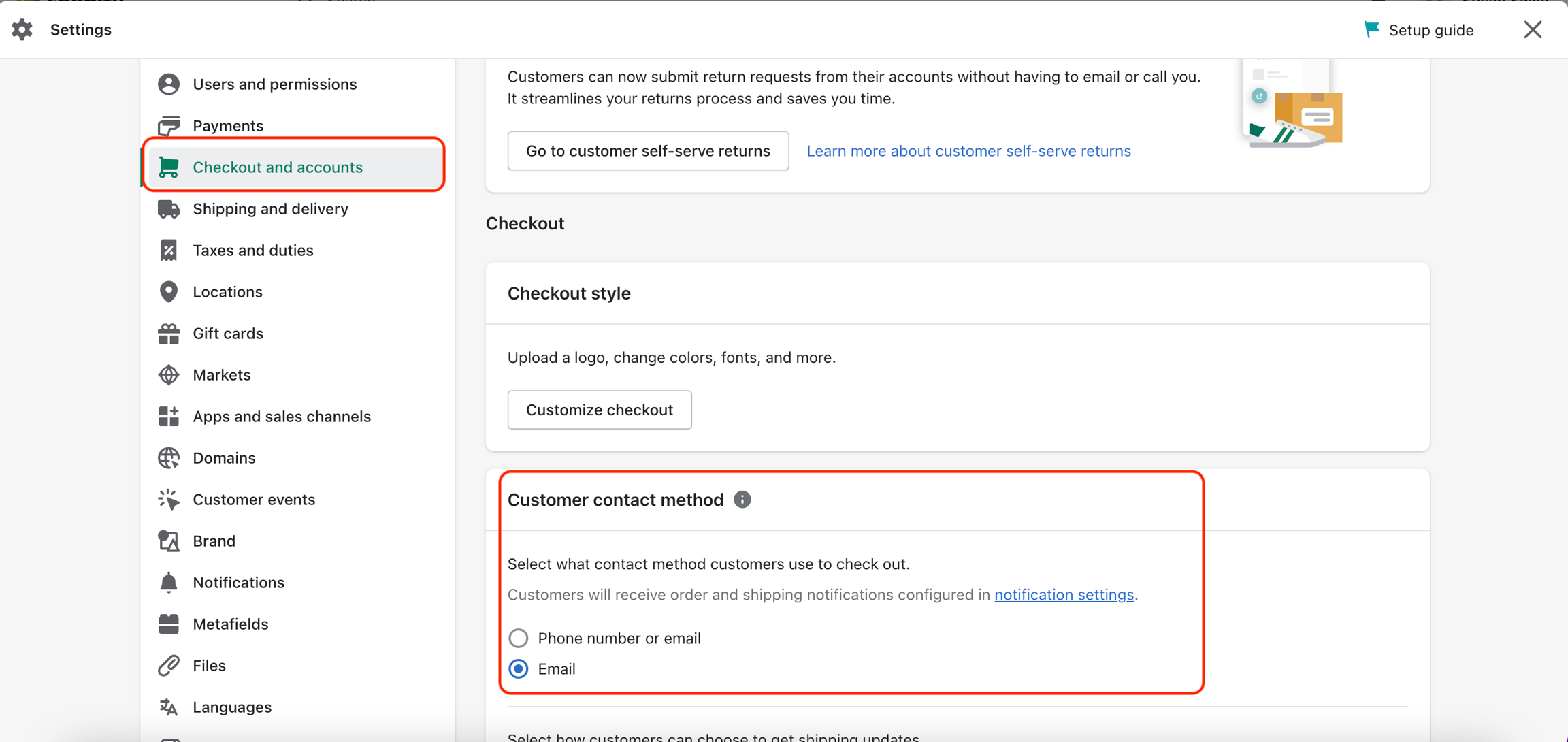
Automatically sync Contact information in Shopify and IS-Messenger
Check if you have the necessary Contact identifiers and settings for your Zaps to work.
Understanding Contact Syncing Logic
There are four tasks that you can automate in order to sync contacts.
Sending data from IS-Messenger to Shopify
Sending data from Shopify to IS-Messenger
Create a customer in Shopify when a new Contact is added in IS-Messenger
When a new Contact is added in IS-Messenger, the Zapier template will automatically search for that contact in Shopify using the email as the identifier. These are the expected outcomes.
Trigger Event
Conditions
Outcomes
New Contact is added in IS-Messenger
Customer exists in Shopify
Zap will stop
New Contact is added in IS-Messenger
Customer does not exist in Shopify
Create a new Shopify customer
New Contact is added in IS-Messenger
Contact does not have an email in IS-Messenger
Zap will stop
Method
Use a Zapier template
How-to
Use this template:
Add new IS-Messenger contacts as Shopify customers.
Template Configuration
IS-Messenger Trigger - New Contact
First, follow the steps to set up a IS-Messenger Zapier integration here and set up your IS-Messenger trigger.
Test the trigger and continue to the next step.
Filter Action
Filters by Zapier and multi-step Zaps are only available on Zapier’s Starter plan and above.
Create a Custom Field in IS-Messenger and name it Contact Note.
Only continue if…
Contact Email exists in IS-Messenger This is because Shopify uses email as a required identifier for Zapier.
Select +And to add Contact Note in IS-Messenger does not contain #shopify. This is necessary to prevent a Zap loop due to Zapier’s limitations on contact syncing.
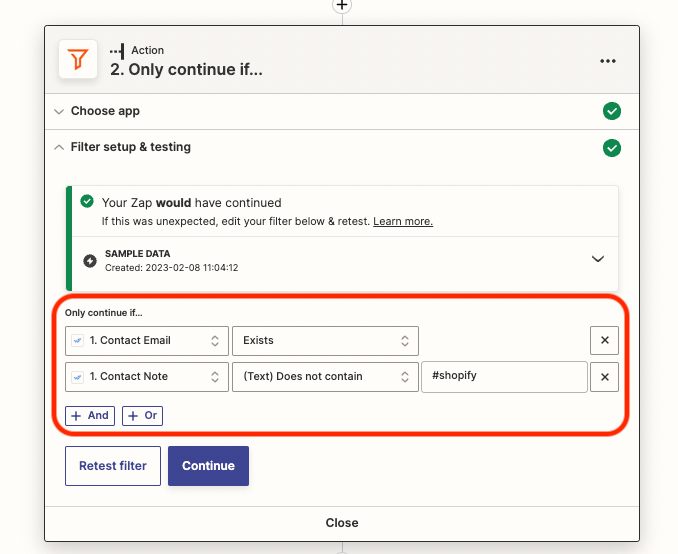
Formatter Action
Last name is required by Shopify to complete a Zap. This action will fill in the last name field if IS-Messenger Contacts do not have a last name on record. Most of the configuration is already done by the template. Simply fill in “Unknown” or any other default value you want to use.
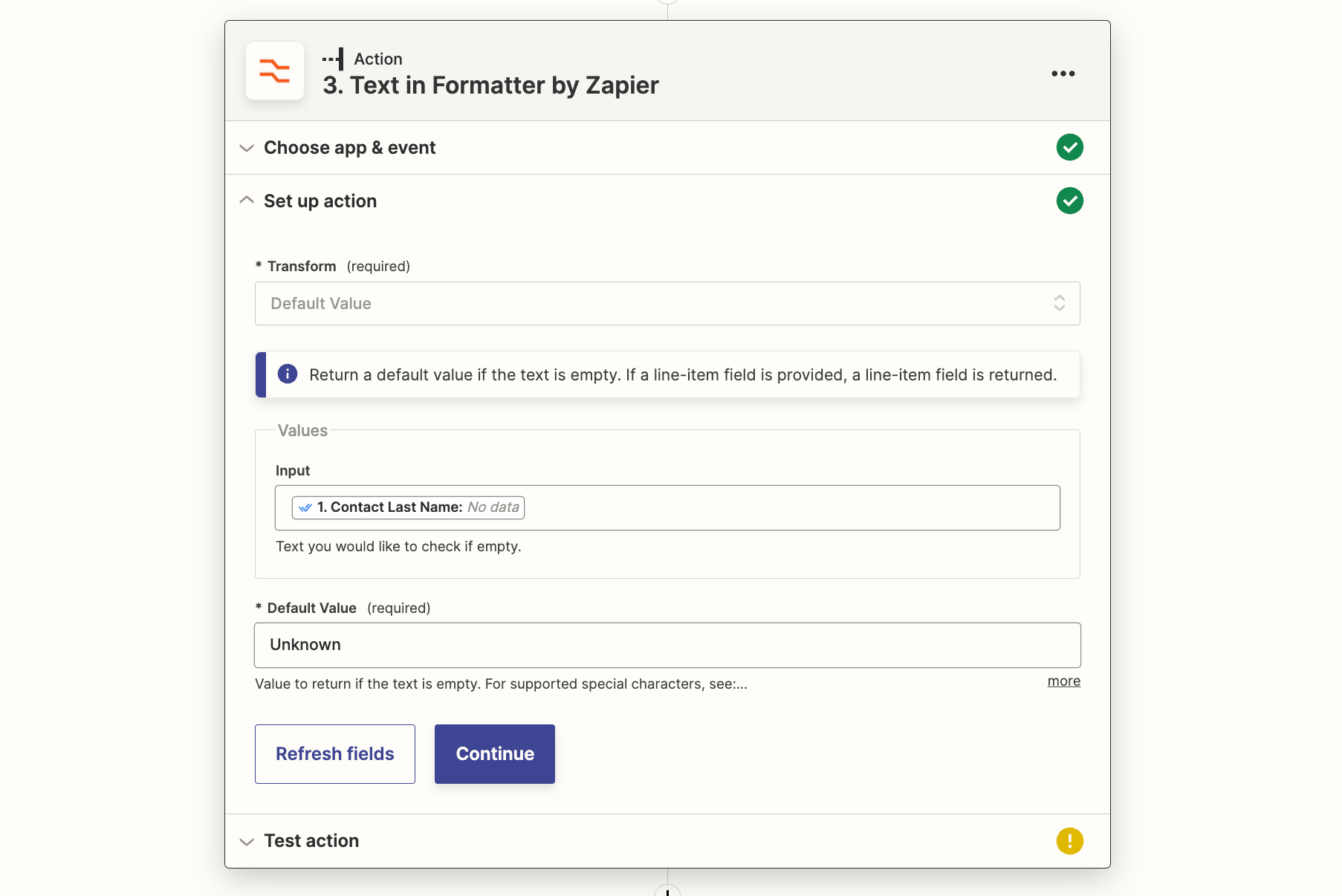
Shopify Action - Find Customer
Select your Shopify account and continue to set up the action. Map the name and email fields to identify the Contact > choose Yes for the step to be considered a success when nothing is found > tick create Shopify Customer if it doesn’t exist yet.
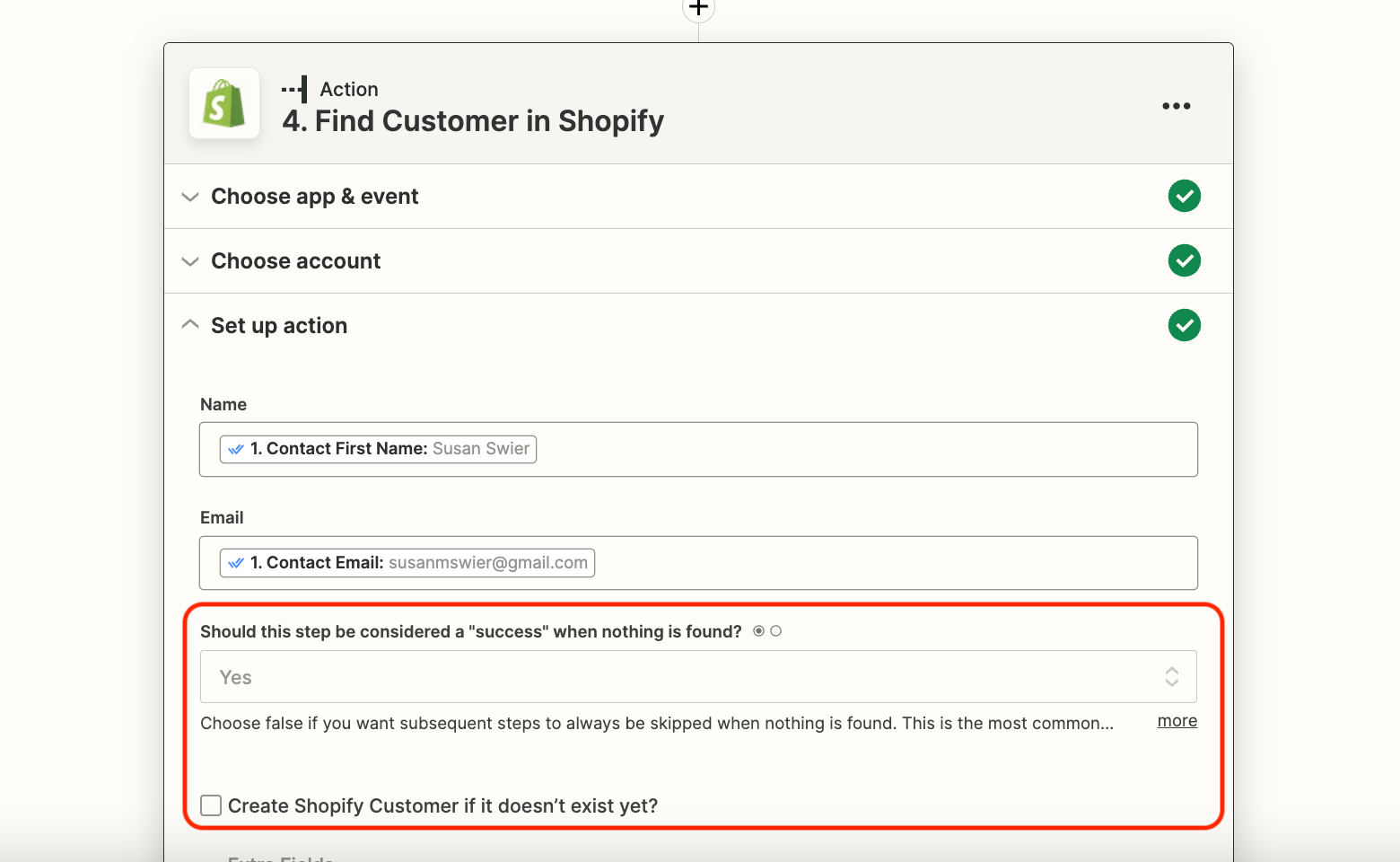
Map the fields to be filled in for the newly created customer.
Fill in email and last name (mandatory fields).
Fill in the Note field with #respond to prevent Zap loops (this is case sensitive).
Choose any other fields you want to add.
If you have Custom Fields in IS-Messenger that match certain Shopify fields, consider mapping those as well.
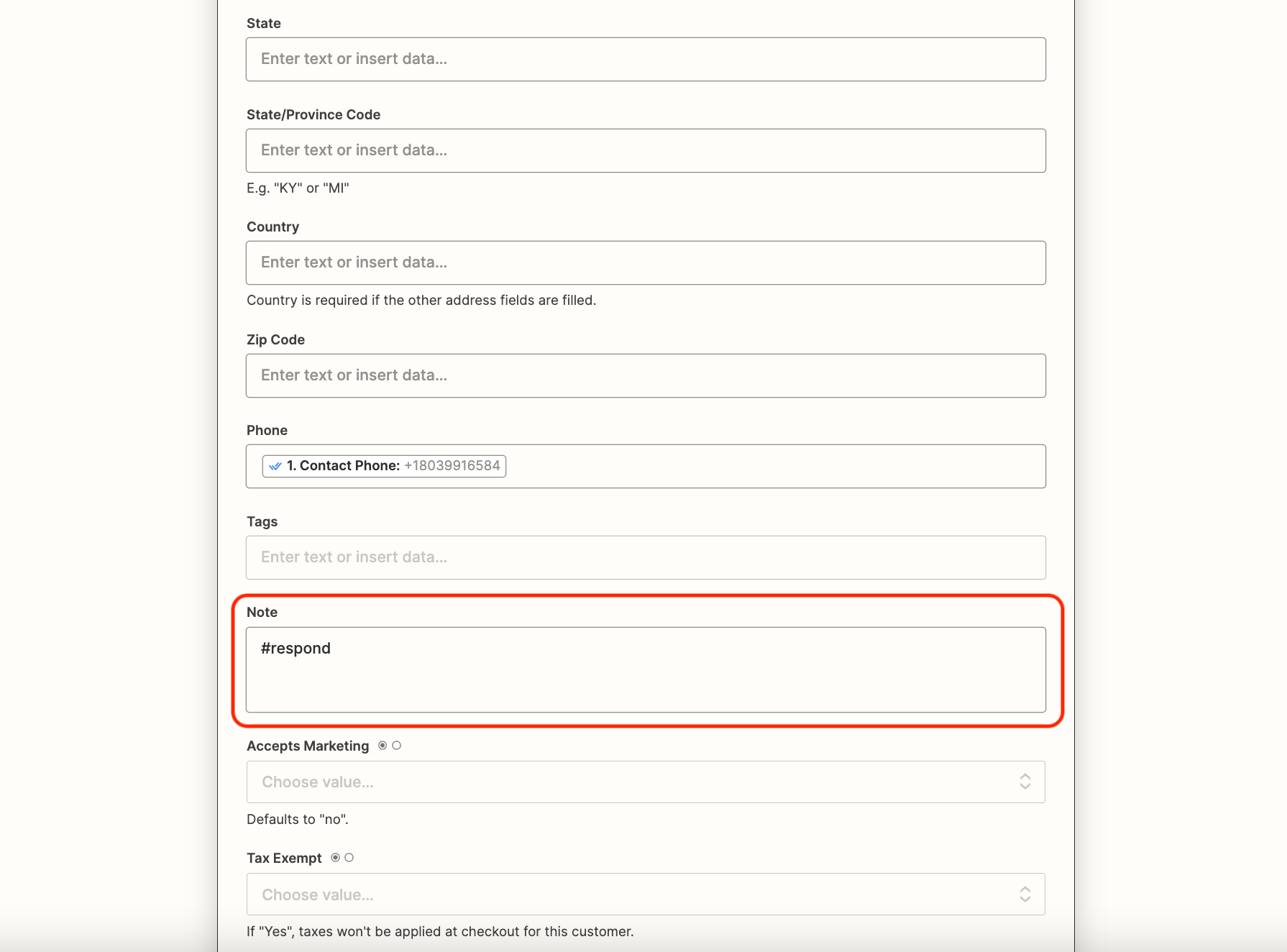
Update a customer’s information in Shopify when it is updated in IS-Messenger
When a Contact is updated in IS-Messenger, the Zapier template will automatically search for that contact in Shopify using the email as the identifier. These are the expected outcomes.
Trigger Event
Conditions
Outcomes
Contact is updated in IS-Messenger
Customer exists in Shopify
Customer information is updated in Shopify
Contact is updated in IS-Messenger
Customer does not exist in Shopify
New Customer is created in Shopify
Contact is updated in IS-Messenger
Contact in IS-Messenger does not have an email
Zap will stop
Method
Use a Zapier template
Template Configuration
IS-Messenger Trigger - Contact Updated
First, follow the steps to set up a IS-Messenger Zapier integration here and set up your IS-Messenger trigger.
Test the trigger and continue to the next step.
Filter Action
Filters by Zapier and multi-step Zaps are only available on Zapier’s Starter plan and above.
Only continue if…
Contact Email exists in IS-Messenger. This is because Shopify uses email as a required identifier for Zapier.
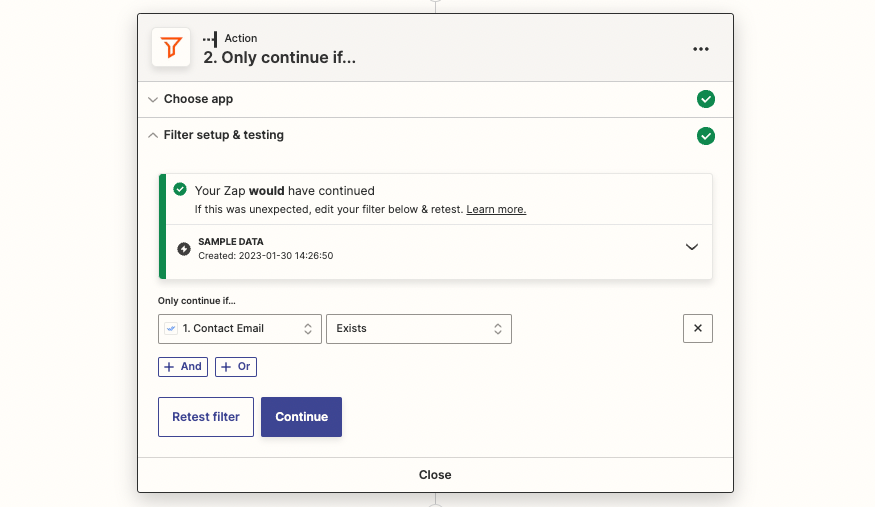
Formatter Action
Last name is required by Shopify to complete a Zap. This action will fill in the last name field if IS-Messenger Contacts do not have a last name on record. Most of the configuration is already done by the template. Simply fill in “Unknown” or any other default value you want to use.
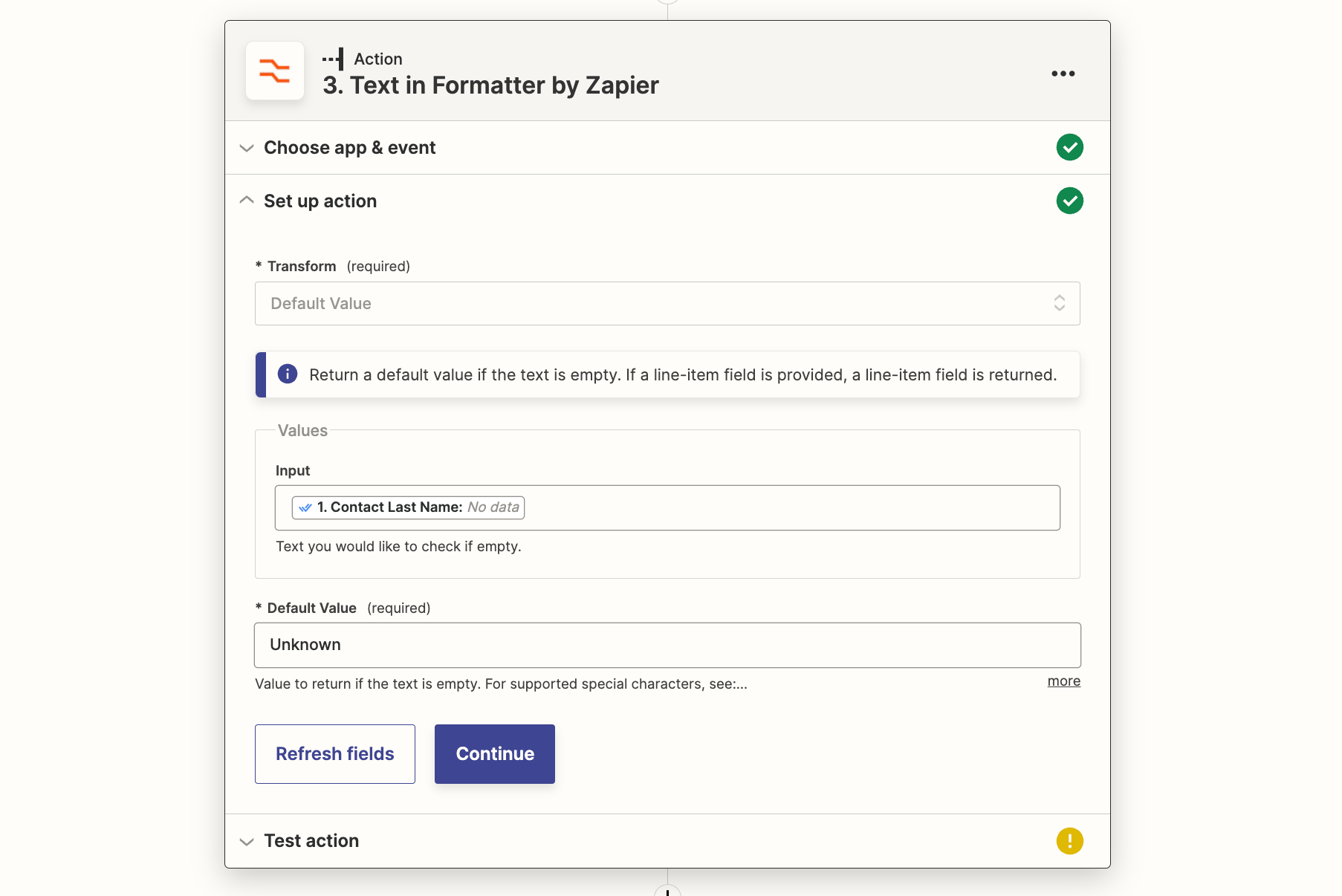
Shopify Action - Find Customer in Shopify
Select your Shopify account and continue to set up the action. Map the name and email fields to identify the Contact > choose Yes for the step to be considered a success when nothing is found > tick create Shopify Customer if it doesn’t exist yet.
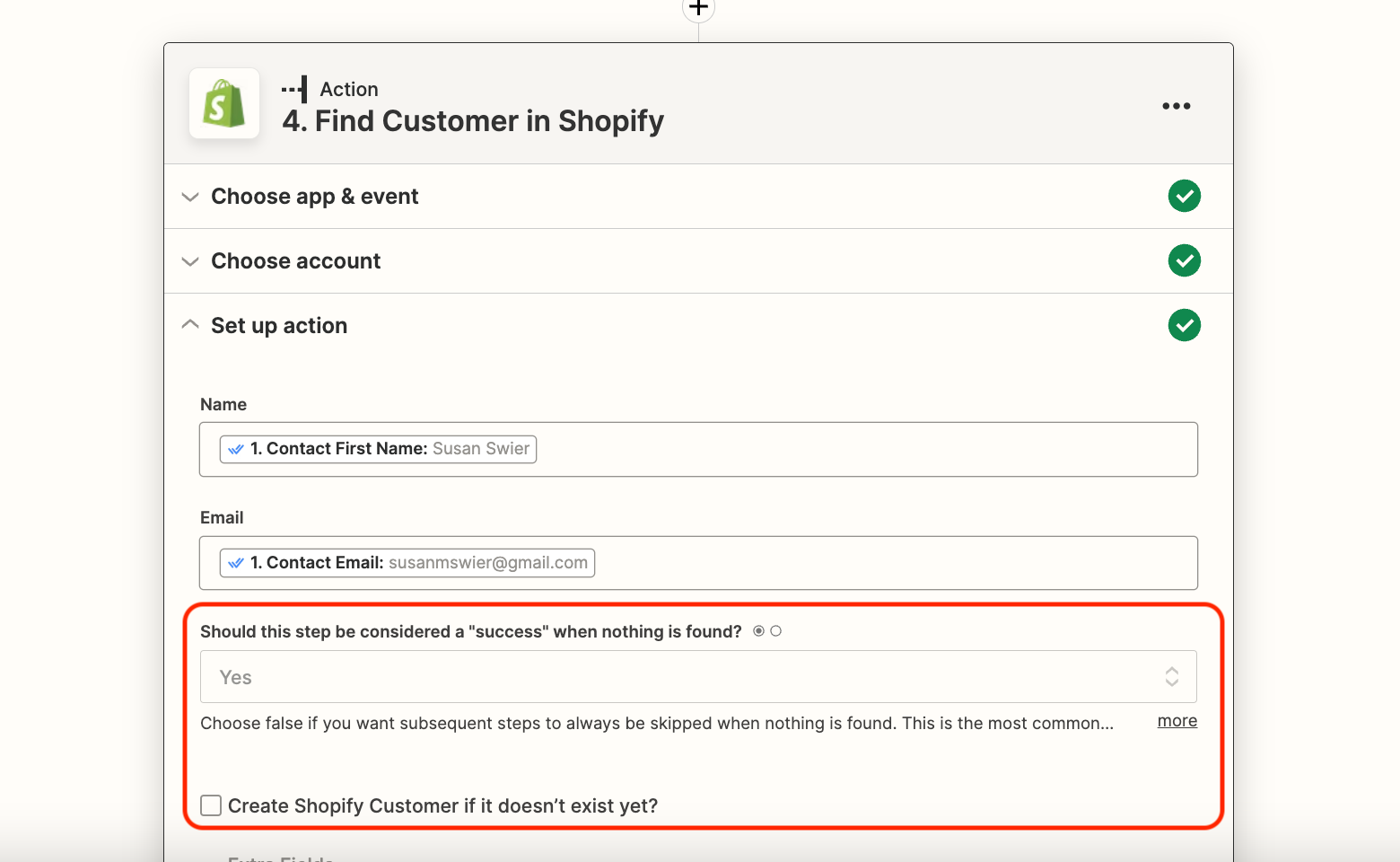
Map the fields to be filled in for the newly created customer.
Fill in email and last name (mandatory fields).
Fill in the Note field with #respond to prevent Zap loops (this is case sensitive).
Choose any other fields you want to add.
If you have Custom Fields in IS-Messenger that match certain Shopify fields, consider mapping those as well.
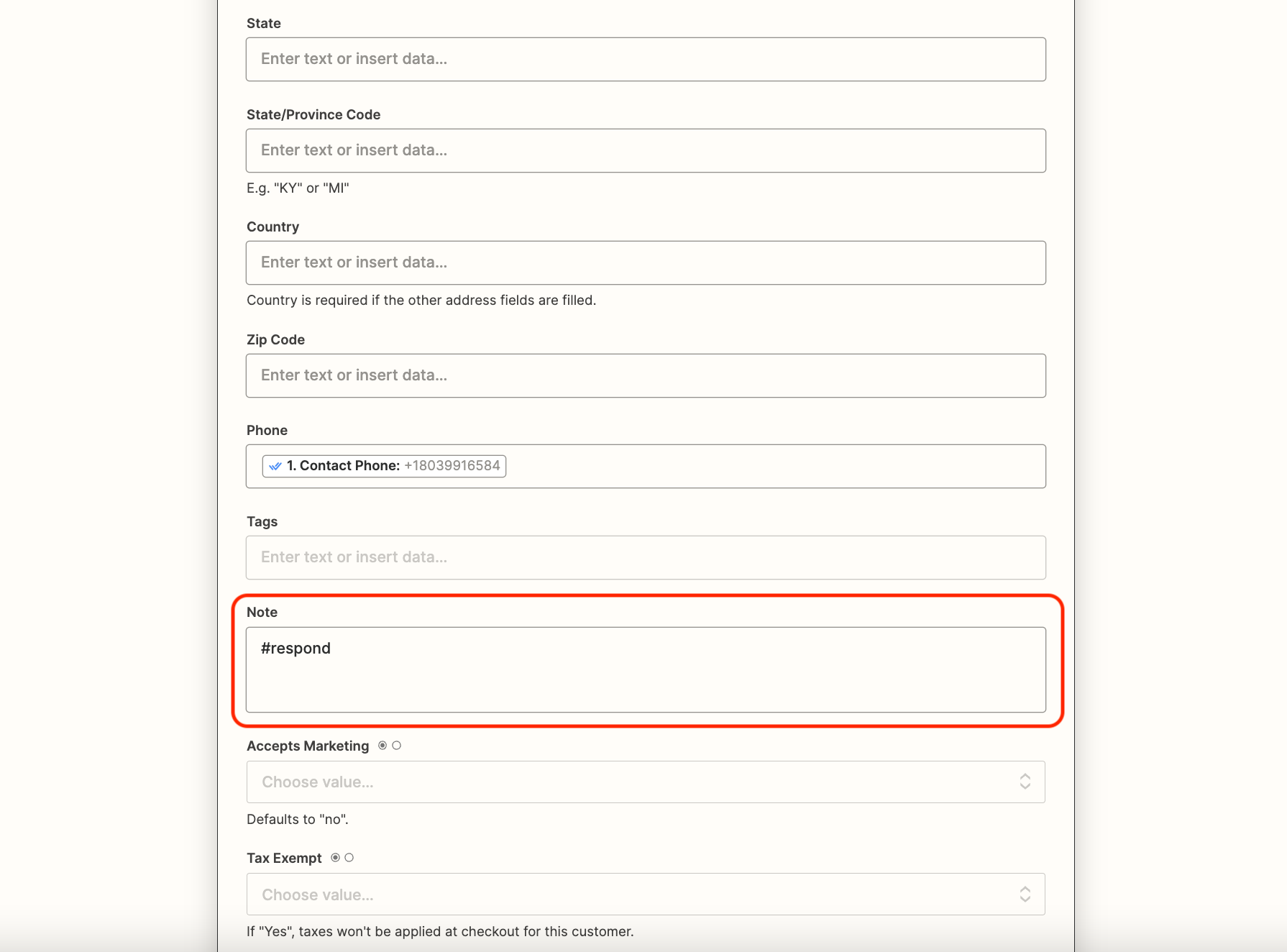
Shopify Action - Update Customer in Shopify
Map the fields you want to fill in to update customer in Shopify.
Choose Shopify Customer ID as the customer identifier.
Fill in Last Name with the Output value from the Formatter step.
Choose any other fields to be updated.
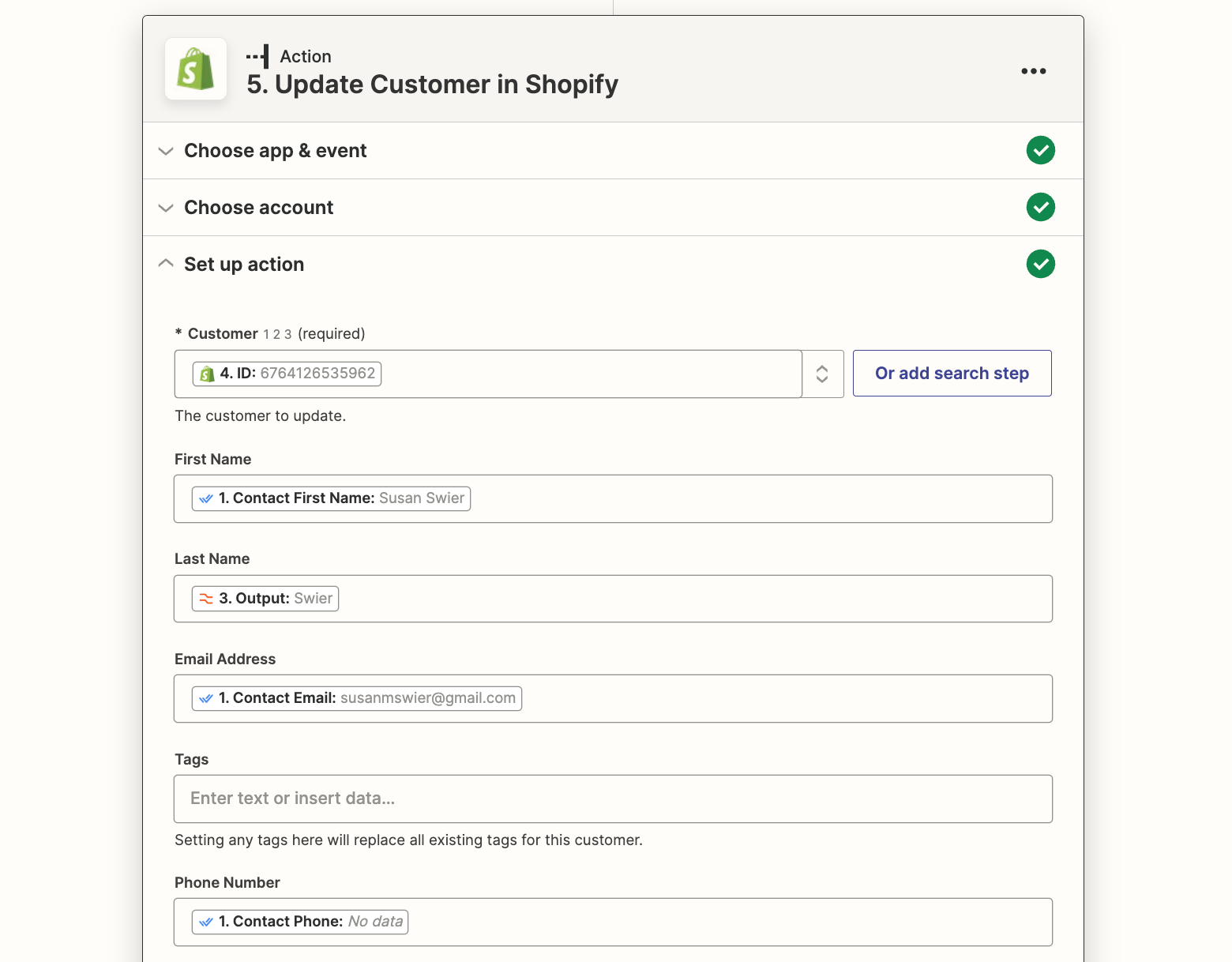
Create or update a Contact in IS-Messenger when a new customer is added in Shopify
When a new customer is added in Shopify, the Zapier template will automatically search for that contact in IS-Messenger using email as the identifier. These are the expected outcomes.
Trigger Event
Conditions
Outcomes
New customer is added in Shopify
Contact exists in IS-Messenger
Update Contact in IS-Messenger with any new details
New customer is added in Shopify
Contact does not exist in IS-Messenger
Create a new IS-Messenger Contact
New customer is added in Shopify
Contact exists in IS-Messenger without an email
Create a new IS-Messenger Contact
Method
Use a Zapier template
How-to
Use this template:
Add new Shopify customers as IS-Messenger contacts
Template Configuration
Shopify Trigger - New Customer in Shopify
Choose your connected Shopify account and test the trigger.
Filter Action
Only continue if…
Note in Shopify does not contain #respond. This is necessary to prevent a Zap loop due to Zapier’s limitations on contact syncing.
Filters by Zapier and multi-step Zaps are only available on Zapier’s Starter plan and above.
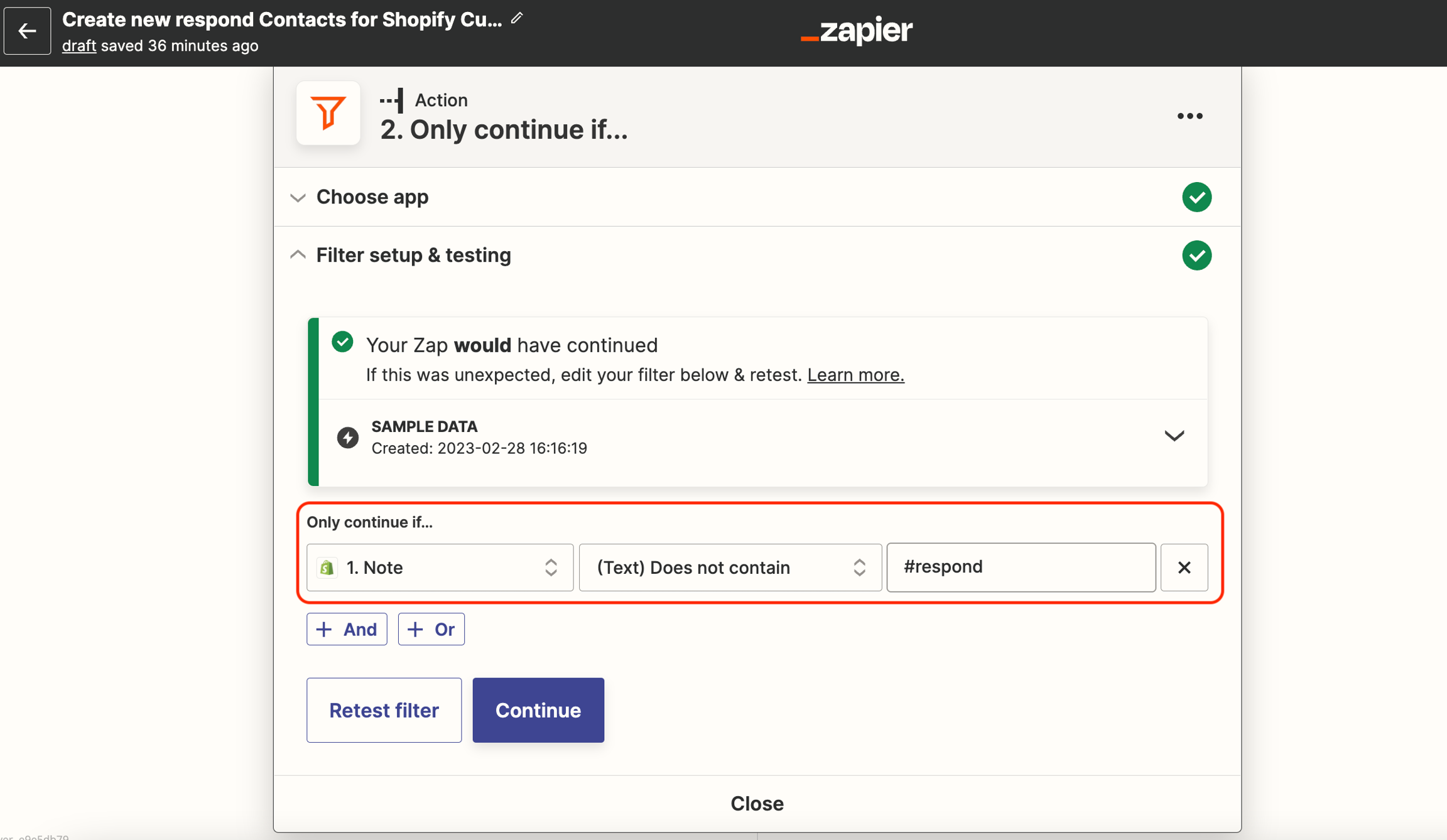
IS-Messenger Action - Create or Update Contact in IS-Messenger
First, follow the steps to set up a IS-Messenger Zapier integration here.
To prevent a Zap loop, add a Custom Field in IS-Messenger and name it Contact Note.
Map the fields you want to add for the IS-Messenger Contact.
Choose Email as the Identifier Type.
Fill in the Contact Note field with #shopify (this is case sensitive).
Fill the other fields with the information you want from Shopify.
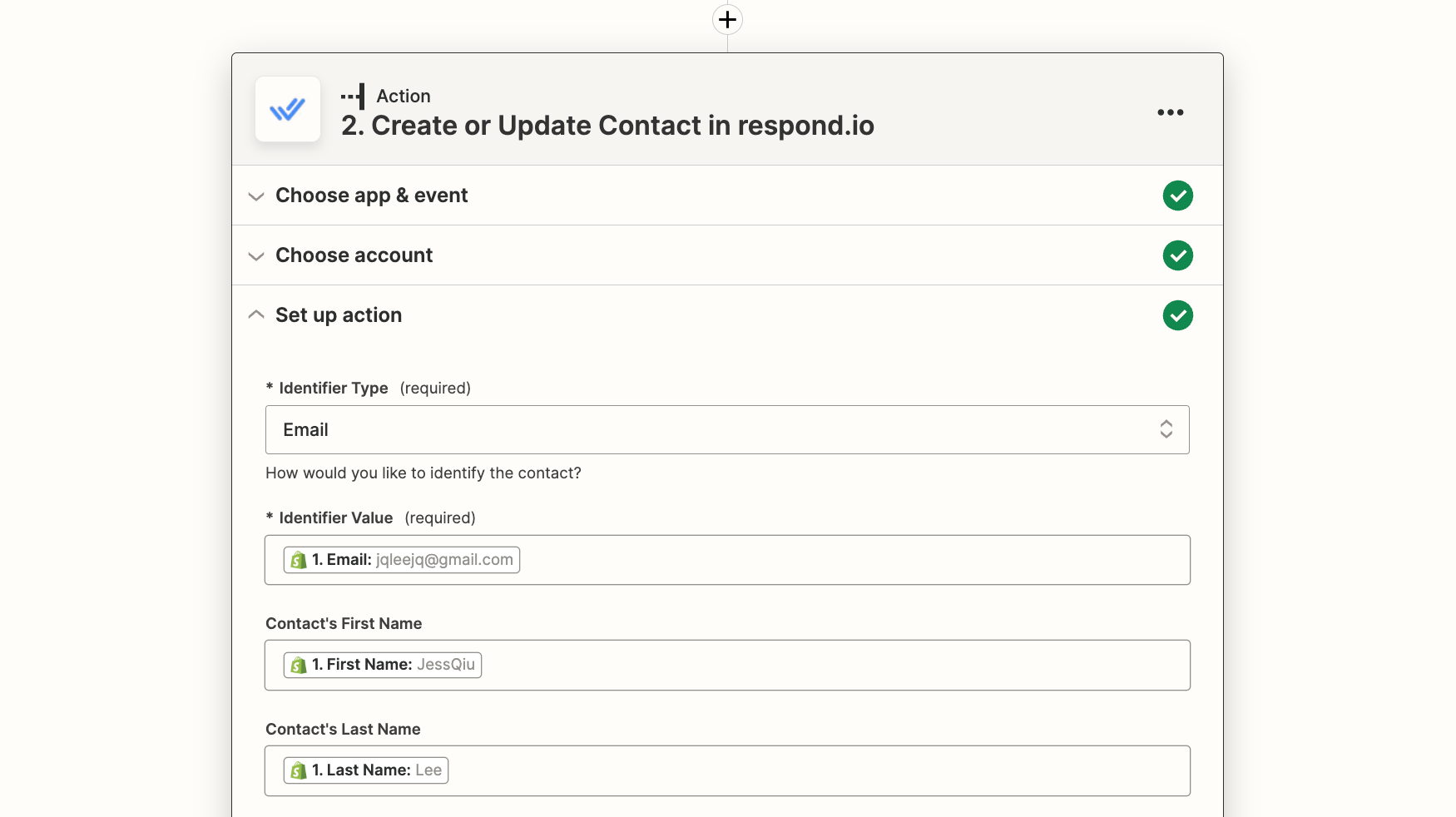
Create or update a Contact in IS-Messenger when a customer is updated in Shopify
When a customer is updated in Shopify, the Zapier template will automatically search for that contact in IS-Messenger using email as the identifier. These are the expected outcomes.
Trigger Event
Conditions
Outcomes
Customer is updated in Shopify
Contact exists in IS-Messenger
Update Contact in IS-Messenger with any new details
Customer is updated in Shopify
Contact does not exist in IS-Messenger
Create a newIS-Messenger Contact
Customer is updated in Shopify
Contact exists in IS-Messenger without an email
Create a new IS-Messenger Contact
Method
Use a Zapier template
How-to
Use this template:
Add new Shopify customer updates to IS-Messenger contacts
Template Configuration
Shopify Trigger - Updated Customer in Shopify
Choose your connected Shopify account and test the trigger.
IS-Messenger Action - Create or Update Contact
First, follow the steps to set up a IS-Messenger Zapier integration here.
Map the fields you want to add for the IS-Messenger Contact.
Select email as the Identifier Type.
Fill the other fields with the information you want from Shopify.
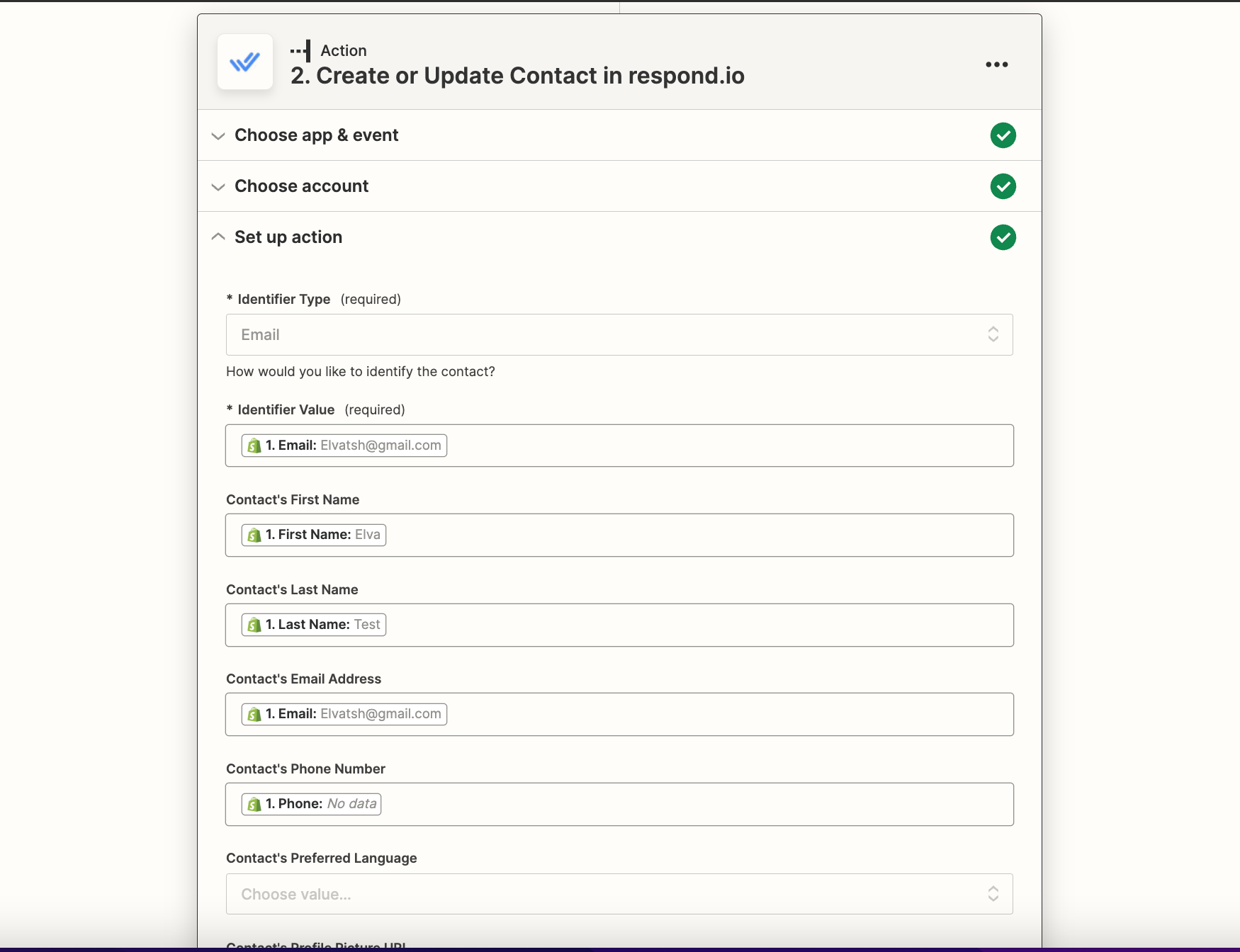
Manage Orders and Carts with IS-Messenger and Shopify
If your customers are IS-Messenger Contacts and you have their email, you can send them instant messages about their Shopify orders and notify agents about customers’ order status. First set up Contact syncing so your customers are more likely to be in both places.
For channels like WhatsApp and SMS, you will also need to have the customer’s phone number.Check that you have the necessary Contact identifiers and settings for your Zaps to work.
Benefits of Managing Orders and Carts with IS-Messenger and Shopify
Keep customers informed about their Shopify orders over their preferred messaging channel
Track customer activity and send tailored messages to prompt purchases
Methods
Send customers instant messages related to their orders using Zapier
This can only be done if the customer is a IS-Messenger Contact and you have their email. For channels like WhatsApp or SMS, a phone number is also required.
How-to
Use this template to send a message to a customer when they make an order in Shopify:
Send messages via IS-Messenger for new Shopify orders
Use this template to send a customer a receipt for their Shopify order:
Send IS-Messenger messages for new Shopify paid orders
Use this template to send customers messages about changes to their order status:
Send messages via IS-Messenger for newly updated Shopify orders
Template Configuration
The configuration is similar for all of these templates.
Shopify Trigger
Select your Shopify account, test the trigger and continue.
IS-Messenger Action - Send Message
First, follow the steps to set up a IS-Messenger Zapier integration here.
Map the fields accordingly:
Identifier Type: Choose email
Identifier Value: Choose Shopify customer email
Channel Type: Select Last Interacted Channel or Specific Channel.
Message Type: Select Text, Attachment, Quick Reply, Custom Payload, or Email.
If the last interacted channel has a messaging window that is closed, the message will not be sent. Use Specific Channel to send template or tagged messages.
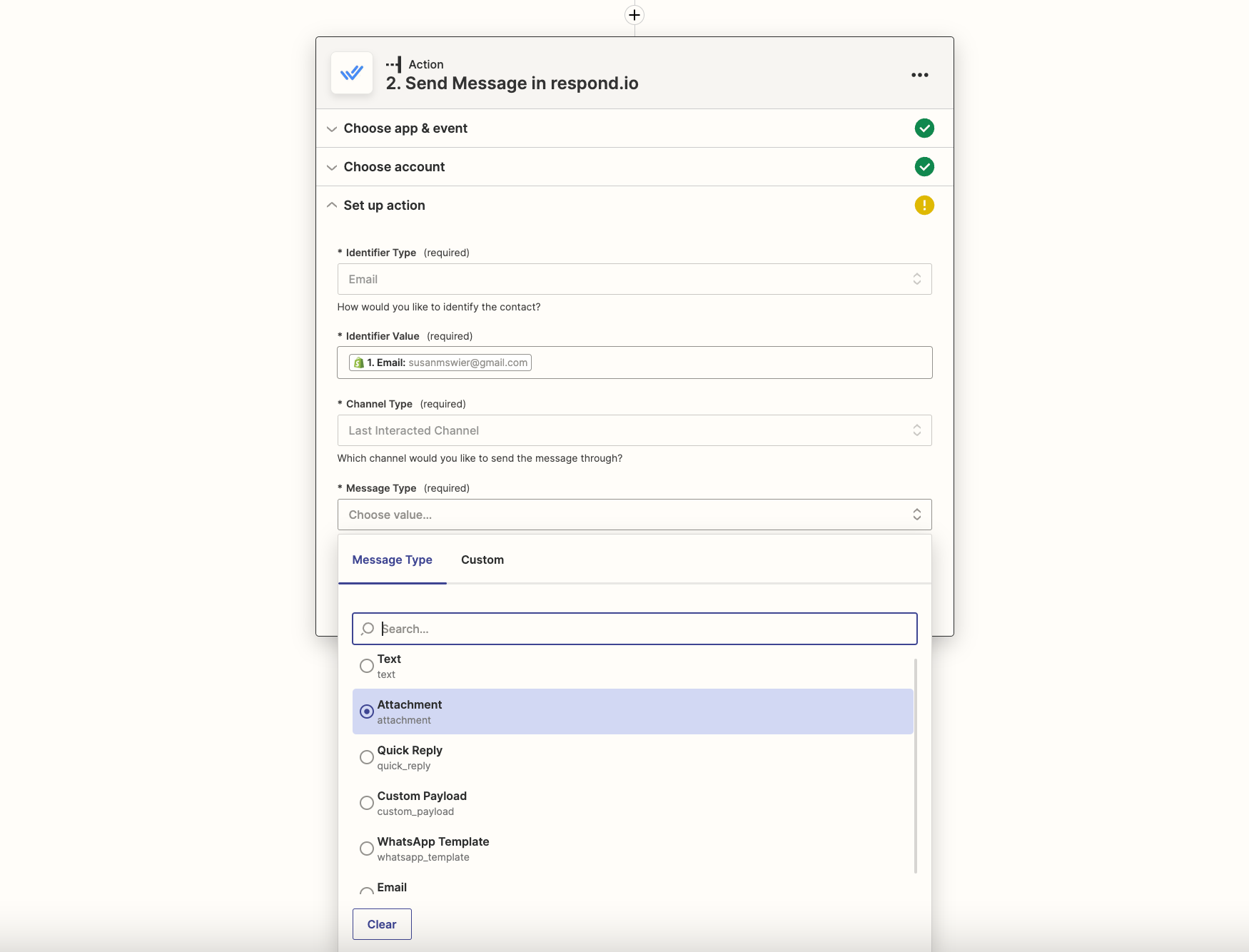
Send abandoned cart messages to prompt customers to complete their Shopify purchase using Zapier
This can only be done if the customer is a IS-Messenger Contact and you have their email. For channels like WhatsApp and SMS, a phone number is also required.
How-to
Use this template to send abandoned cart messages:
Send IS-Messenger messages for new abandoned Shopify carts
Template Configuration
Shopify Trigger - New Abandoned Cart in Shopify
Select your Shopify account and select the age of the cart in hours. Test the trigger and continue.
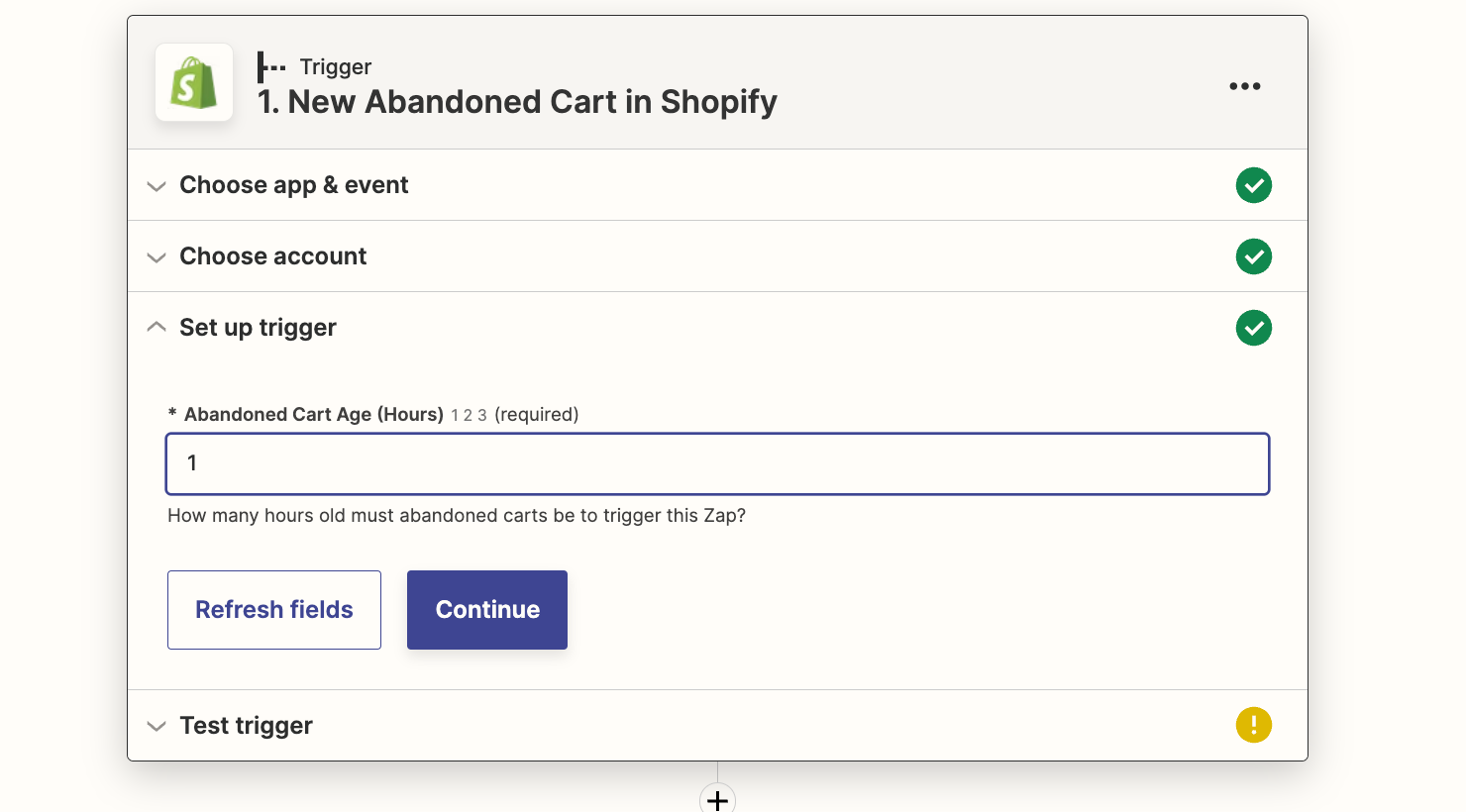
IS-Messenger Action - Send Message
First, follow the steps to set up a IS-Messenger Zapier integration here.
Map the fields accordingly:
Identifier Type: Choose email
Identifier Value: Choose Shopify customer email
Channel Type: Select Last Interacted Channel or Specific Channel
Message Type: Select Text, Attachment, Quick Reply, Custom Payload, or Email
If the last interacted channel has a messaging window that is closed, the message will not be sent. Use Specific Channel to send template or tagged messages.
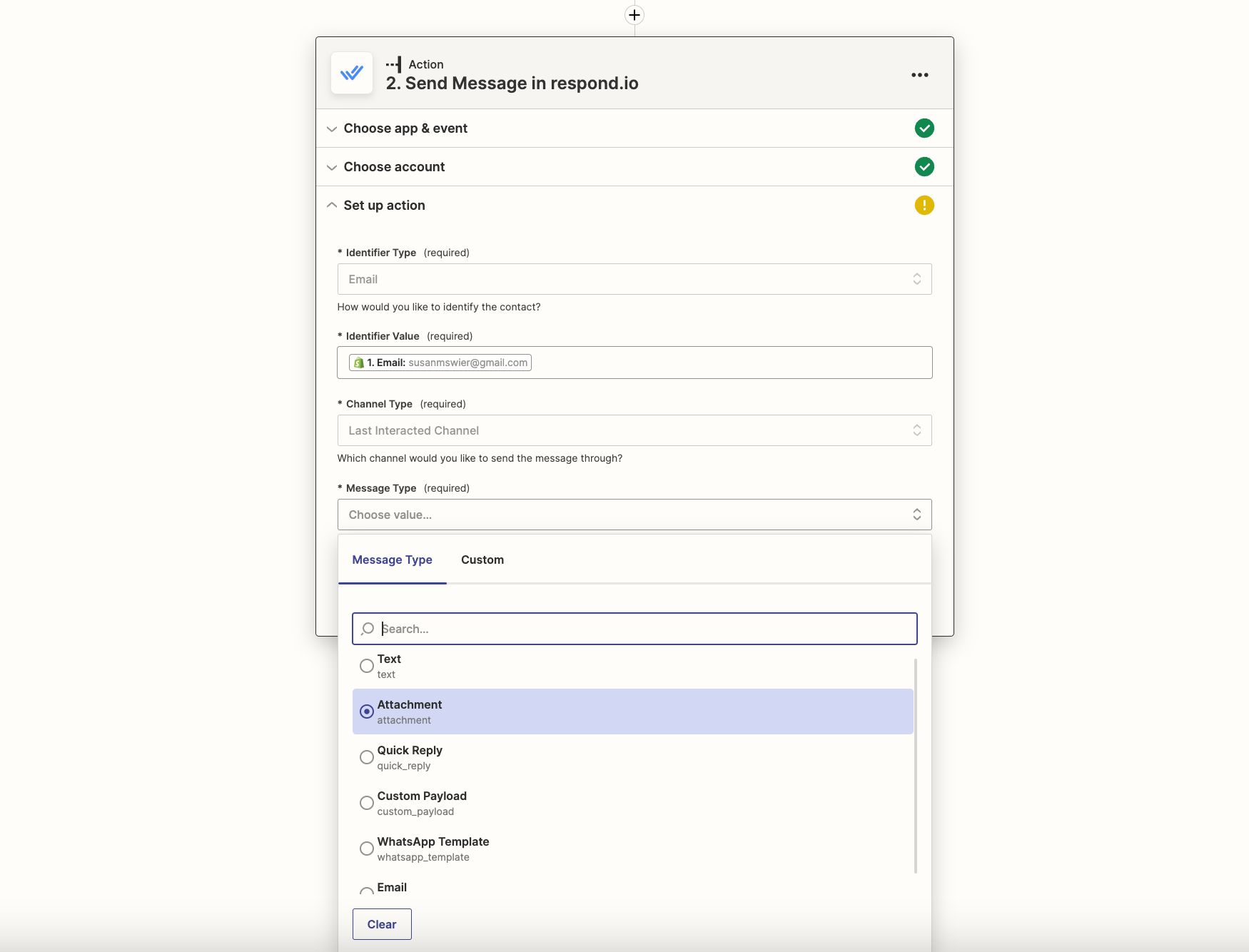
Update IS-Messenger Contacts’ Shopify order statuses using Zapier
You can only do this if you have the Contact’s email in IS-Messenger. These are the expected outcomes.
Trigger Event
Conditions
Outcomes
Shopify order activity
Contact exists in IS-Messenger with an email
Add tags to IS-Messenger Contact
Shopify order activity
Contact does not exist in IS-Messenger
Zap will stop and send an error message
Shopify order activity
Contact exists in IS-Messenger without an email
Zap will stop and send an error message
How-to
Use this template to add tags to IS-Messenger Contacts so agents can see Contacts’ Shopify purchase activity:
Add custom tags to contacts in IS-Messenger after new purchases in Shopify
Trigger Configuration
Shopify Trigger
Select your Shopify account and the type of order activity you want to trigger the Zap. For this example, we’re using paid, closed, shipped orders. You may set up different Zaps for different order statuses.
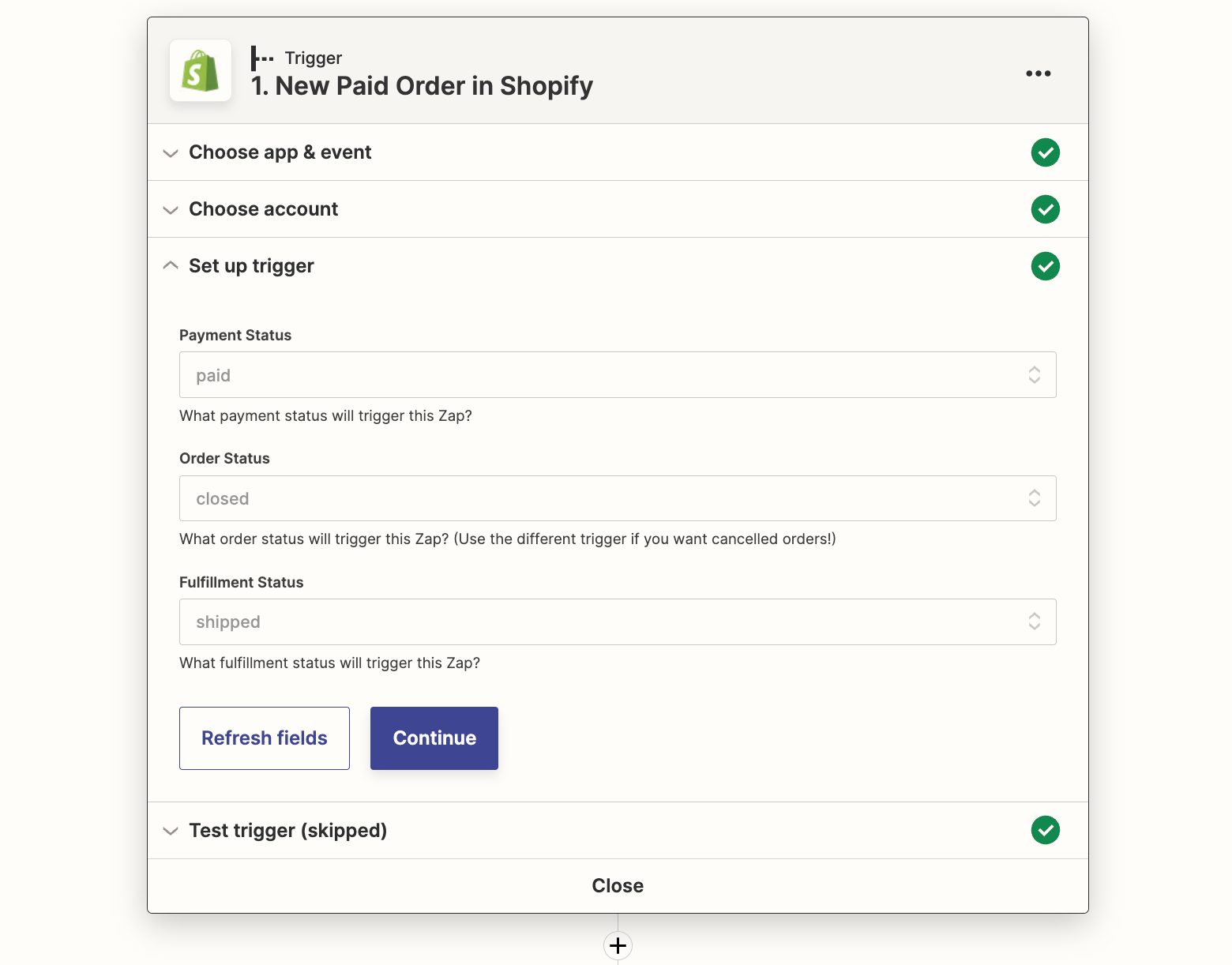
IS-Messenger Action - Add Tags in IS-Messenger
First, follow the steps to set up a IS-Messenger Zapier integration here.
Choose email as the identifier and fill in the Shopify customer email as the value. You may type in the tags or choose from Shopify fields.
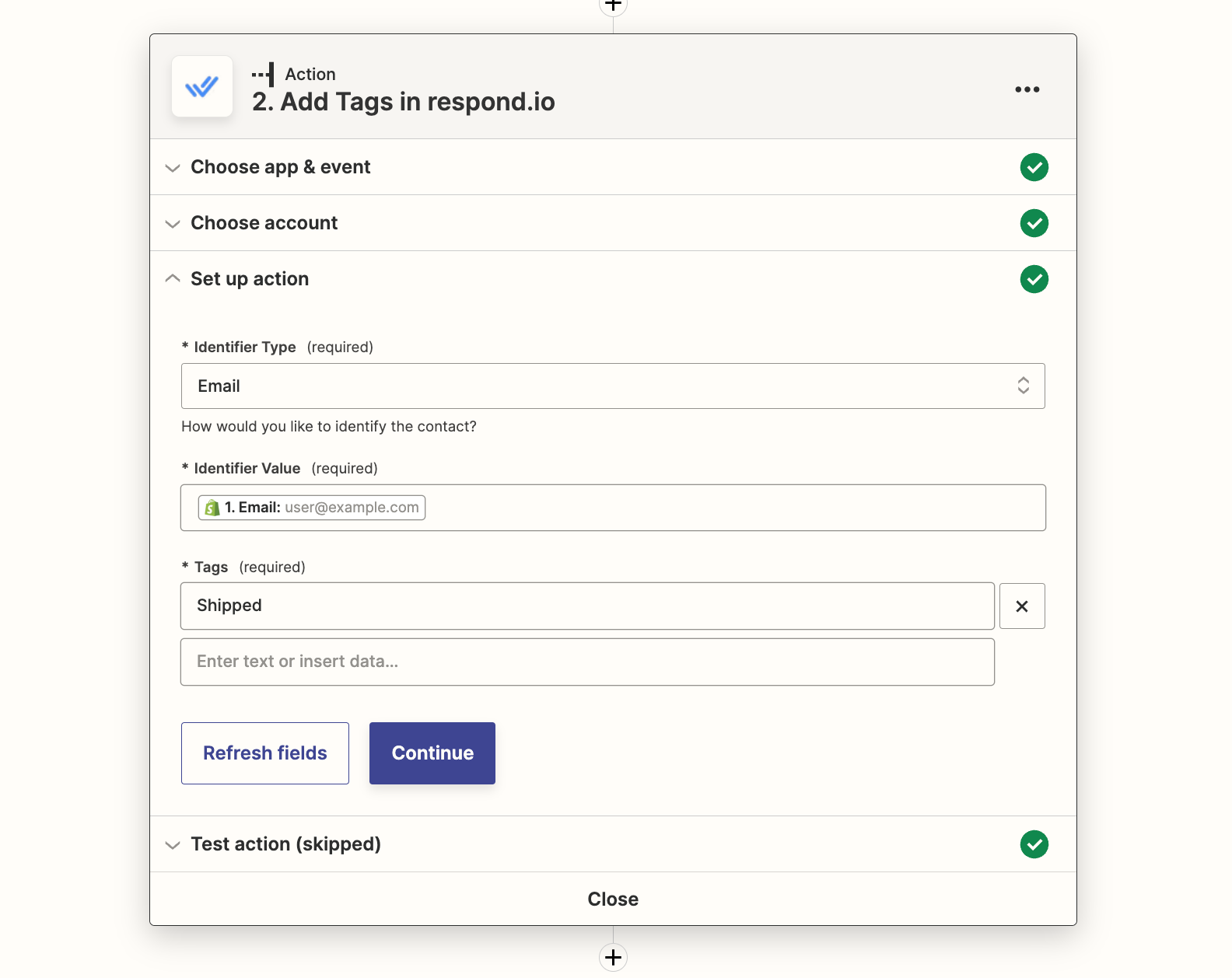
Last updated